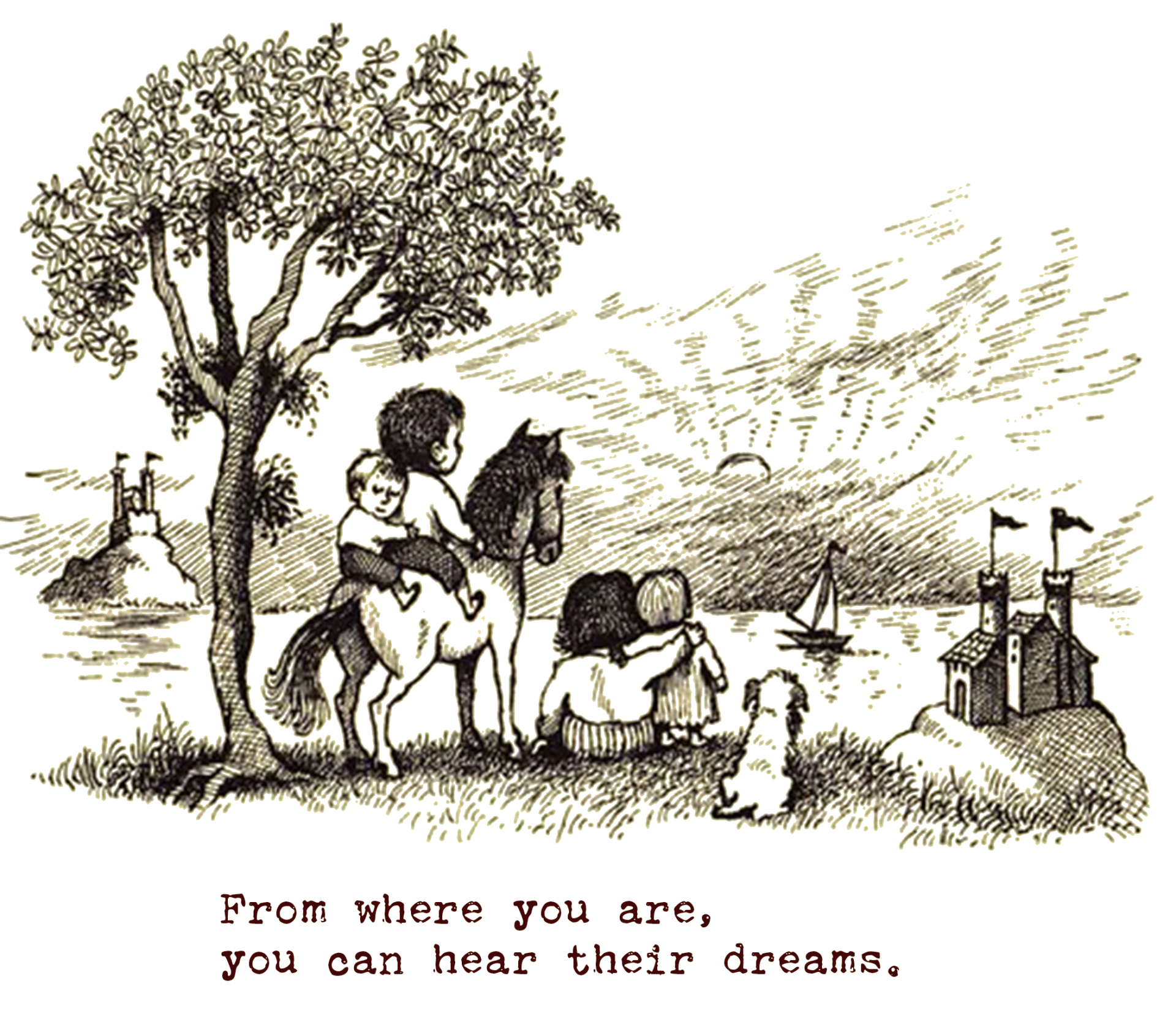At Tuesday’s Upper School assembly, and again at this morning’s Parents Association Fall Coffee, I remembered my friend Jake MacNelly, who died in an accident in 1996 when he and I were both in our mid-twenties. Jake had extraordinary gifts for ease, lightheartedness, and connection. It would be wrong to say that he never took anything too seriously, but he certainly never took himself too seriously, and at his funeral, one of our friends remembered him in this perfectly fitting way: “When you were with him, Jake never had anywhere more important to be.”
In my letter to all current MICDS parents and guardians on Friday, August 11, before the opening week of school, I referenced Open House for Butterflies, a 1960 children’s story by Ruth Krauss that supposes “everybody should be quiet near a little stream and listen.” I returned to this wonderful book at today’s Fall Coffee, noting its pearls of wisdom (for example, “a song for bumpy roads is good to know,” and “a good thing to think about is what kind of face to make when you say please”) and sharing its delightful drawings by Maurice Sendak, best known for Where the Wild Things Are. Implicit in both the words and illustrations of Open House for Butterflies, as were implicit in the character of my friend Jake, is an esteem for ease, lightheartedness, and connection to the world beyond the self. Its characters have nowhere more important to be.
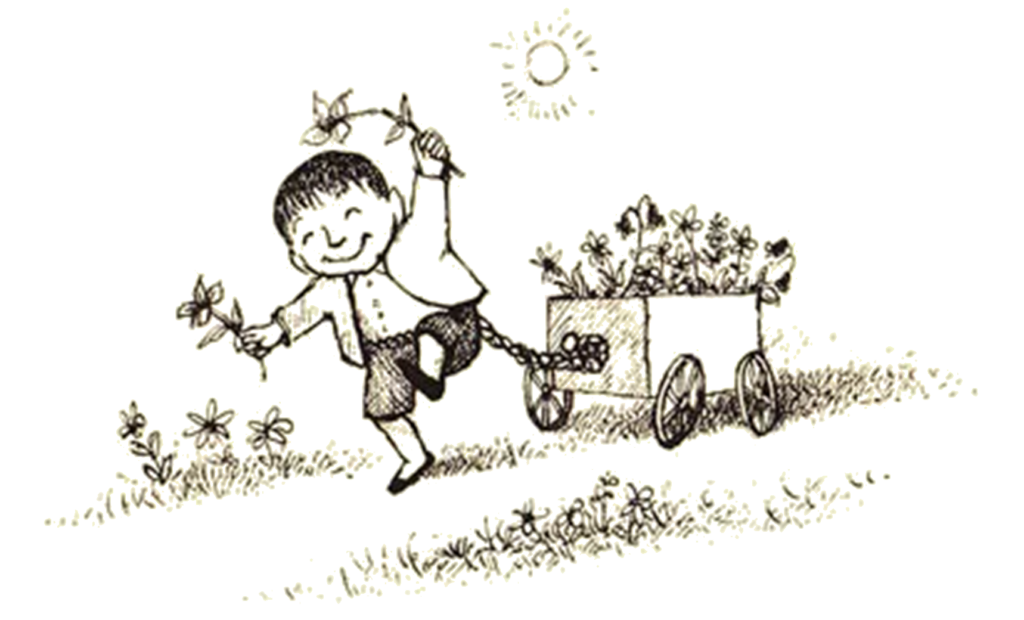
If I were to elevate any practice or habit as “first among equals” in our work as a community this year at MICDS, it would be the practice and habit of listening. We should listen to the children and adolescents whose interests this institution endeavors to serve—and who grow up quickly, as we adults know all too well. (“Listen,” writes Dylan Thomas in the 1954 radio drama Under Milk Wood. “Time passes. Come closer now. From where you are, you can hear their dreams.”) We should listen to those who confide in us with unfailing respect and in search of understanding. (“Be kind, for everyone is fighting a great battle,” writes Ian MacLaren.) We should listen to confer dignity, meaning, and fulfillment on the lives of others and thus, reciprocally, confer them on our own. (“Only connect,” writes the novelist E.M. Forster.) We should listen in proof of our unconditional love of friends and family. (“You will be loved,” writes Cesare Pavese, “the day when you will be able to show your weakness without the person using it to assert his strength.”) We should listen so that we can learn. (“Everything has already been said,” writes André Gide, “but since no one listens, it is forever necessary to repeat.”) It is circular work more than it is linear, and it’s fun to imagine how Maurice Sendak might have brought it to life in Open House for Butterflies.
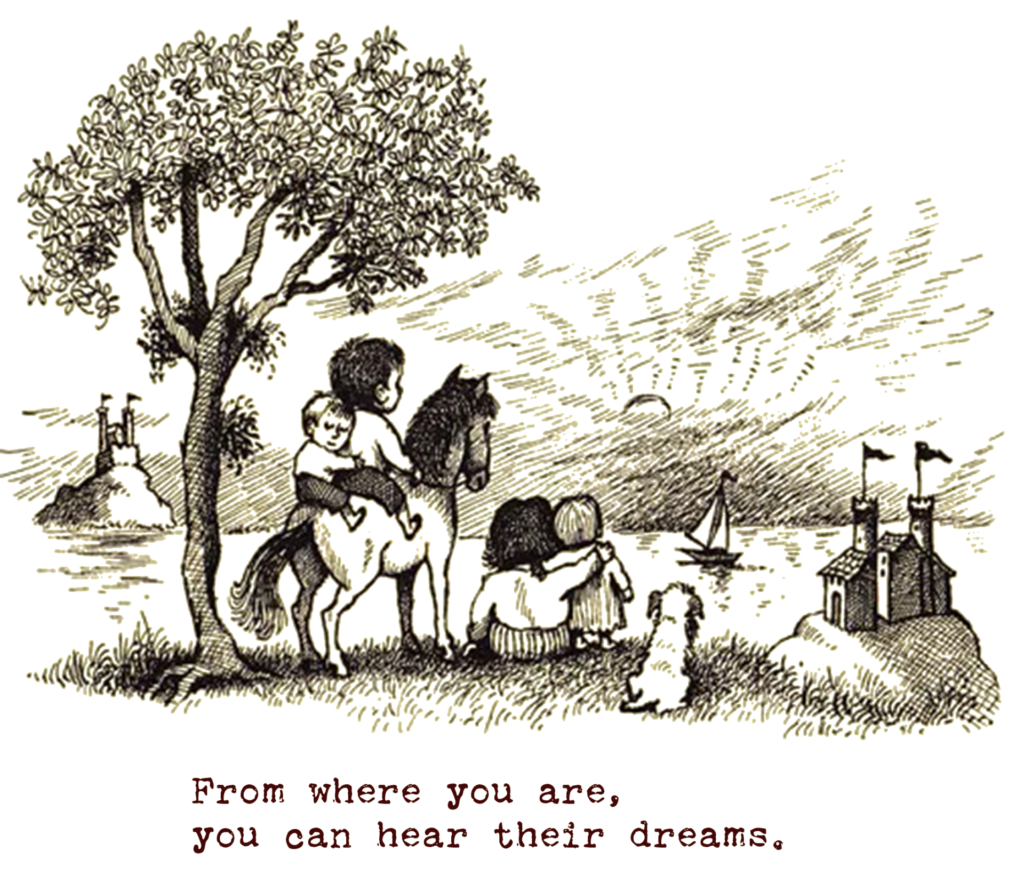
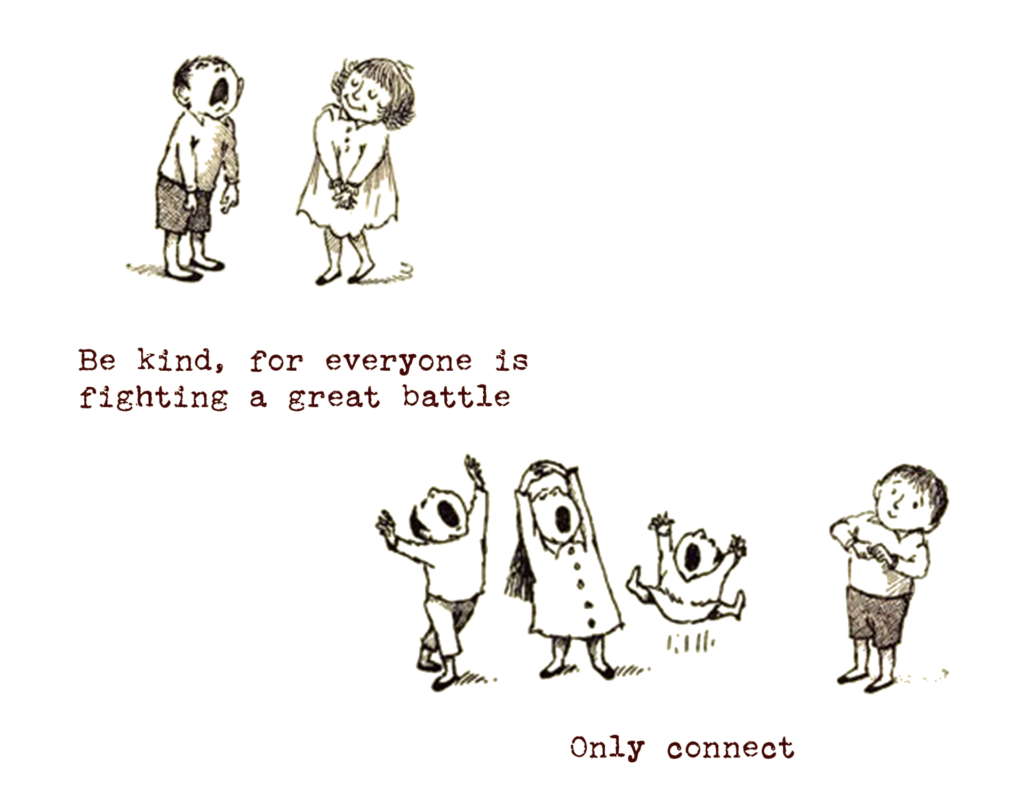
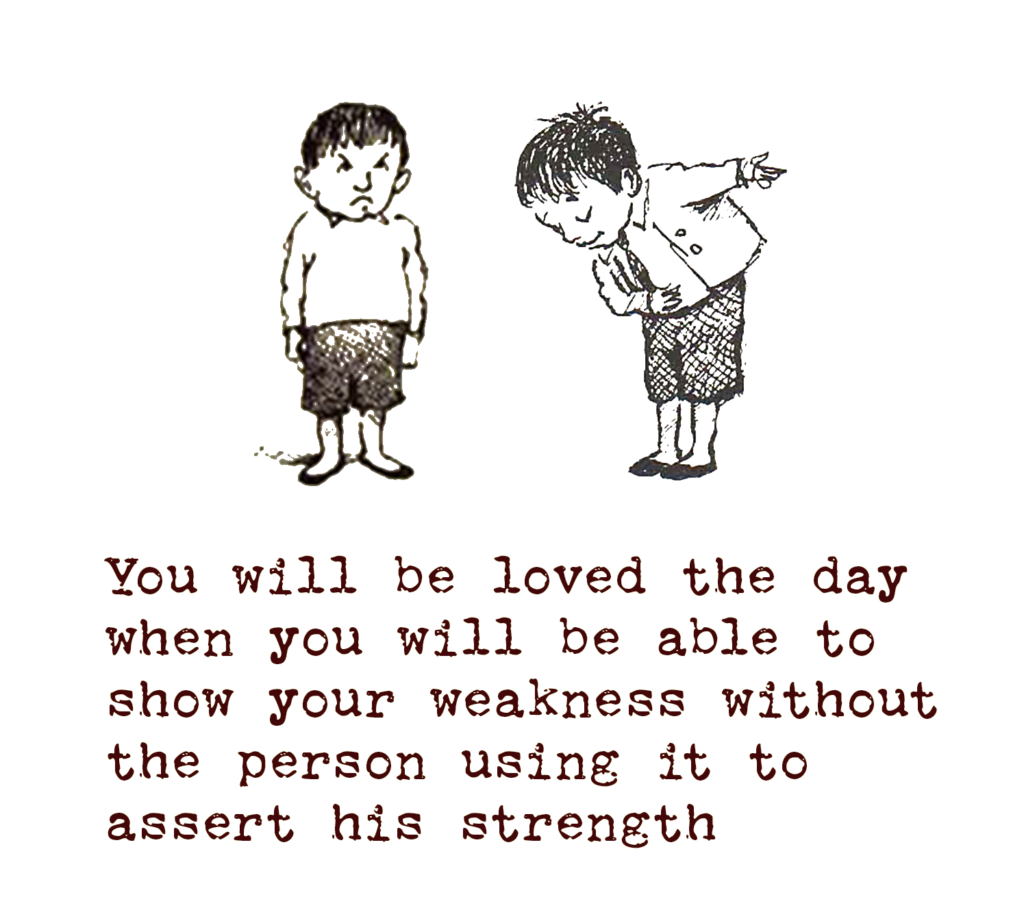
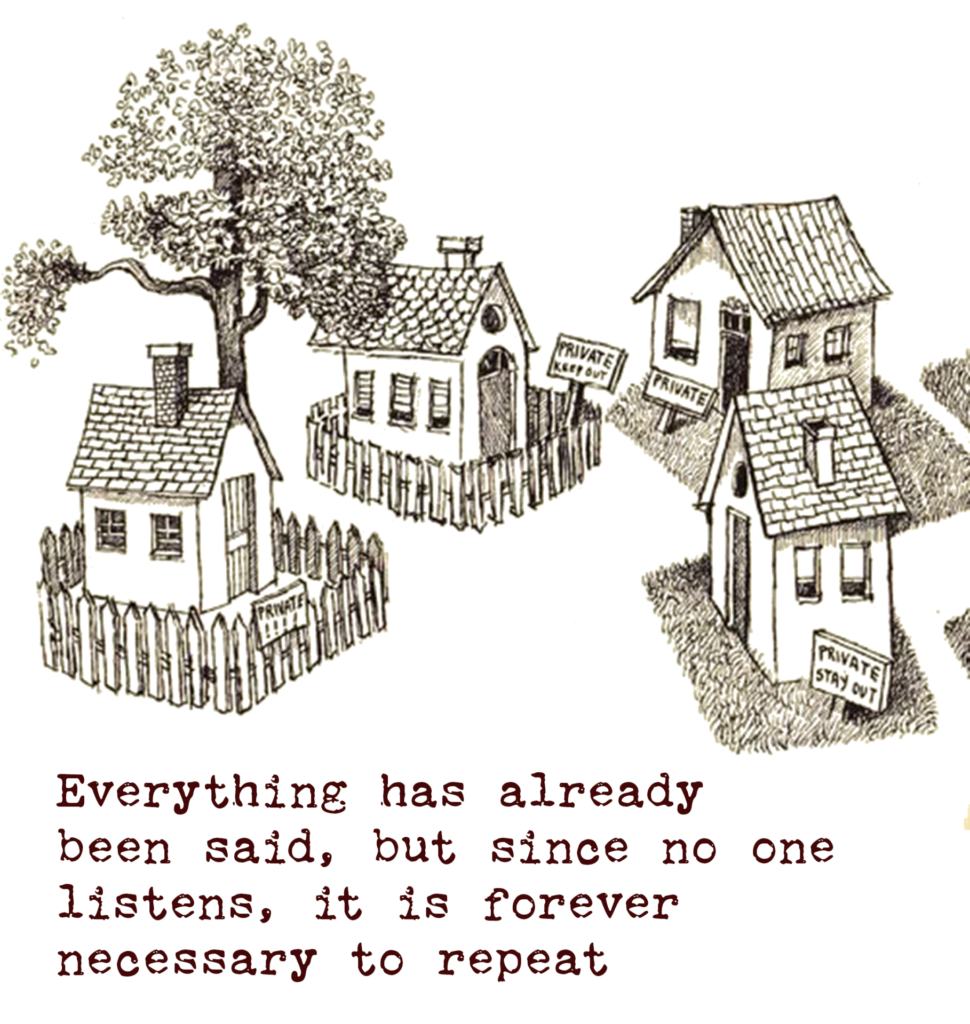
Throughout the school year that we have now commenced, and for that matter in years to come, I hope that each of us at MICDS will keep two questions ever in mind as opportunities to listen, to learn, and to support one another present themselves: “Do I have anywhere more important to be?,” and, if not, “Can I listen a little more?” After all, everybody should be quiet near a little stream—or a child—or a colleague—or a classmate—or a friend—or a loved one—and listen.
Always reason, always compassion, always courage. My best wishes to you and your loved ones for a happy weekend.
Jay Rainey
Head of School
This week’s addition to the “Refrains for Rams” playlist: Jump, Jive, an’ Wail by Louis Prima. It is the seventh track on his album The Wildest! (1956), which is included in the book 1001 Albums You Must Hear Before You Die. (Apple Music / Spotify)
